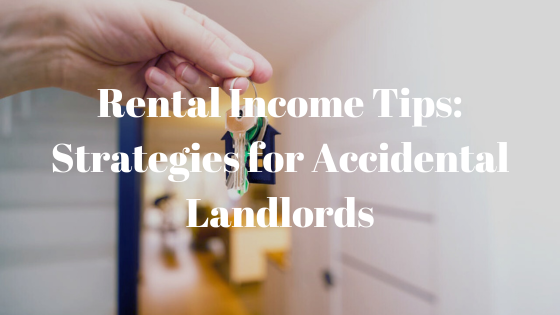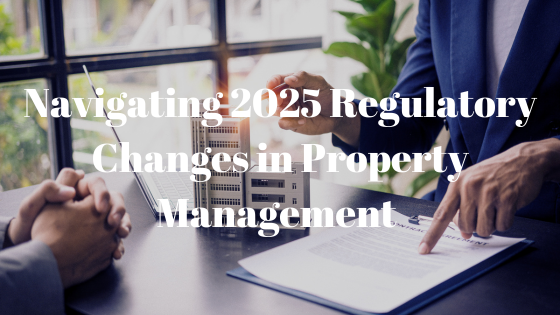Investing in Out-of-State Property

Landlords often invest in out-of-state properties for a variety of reasons. Investing in a state with a thriving economy and growing job market can lead to increased property appreciation, delivering long-term financial gains.
Additionally, it can help you diversify your portfolio and reduce risk exposure. By spreading your investments across different locations, you can safeguard your assets against market fluctuations or economic downturns.
Moreover, the favorable tax in certain states can be a driving force, as lower property taxes can significantly contribute to the overall profitability of an investment. So, the prospect of investing in out-of-state property presents both opportunities and challenges.
In this article, Dawson Property Management will provide a clear understanding of the benefits and the challenges of investing out-of-state. This will help you approach this decision with careful consideration and a clear understanding of the potential benefits and pitfalls.
Benefits of Investing in Property Outside Your Home State
Diversification
One of the primary advantages of investing in out-of-state property is diversification. Spreading your investments across different geographic locations can help mitigate risks associated with regional economic downturns or localized market fluctuations.
Higher Returns
In some cases, out-of-state markets may offer better returns on investment compared to local markets. Emerging markets with lower property prices may provide you with the potential for increased profitability.

Market Growth Potential
Investing in a state with a growing economy and population can lead to long-term appreciation in property values. It is crucial that you identify regions with positive economic indicators and job growth.
Tax Benefits
Certain states may offer more favorable tax climates for real estate investors, including lower property taxes, no state income tax, or other incentives that can positively impact your bottom line.
Challenges Associated with Out-of-State Property Ownership
Distance Management
The most difficult part of owning property in another state is the physical distance. Managing properties remotely as a long-distance landlord can be complicated and may require a robust support system.
Local Market Knowledge
Without a detailed understanding of the local market dynamics, you may struggle to make informed decisions. Different states have unique laws, regulations, and market trends that you must navigate to ensure successful property management.
Limited Personal Oversight
Being physically distant from your investment properties can hinder your ability to personally oversee maintenance, tenant relations, and other critical aspects of property management.
Unforeseen Costs and Risks
Managing property from a distance exposes you as a landlord to unforeseen costs and risks. Local issues such as natural disasters, local economic downturns, or changes in legislation can impact your investment without immediate awareness.
Considerations Before Purchasing Property in Another State
Research and Due Diligence
Before looking into an out-of-state investment, you should conduct thorough research and due diligence. Understand the local market conditions, economic trends, and the legal requirements for property ownership in the target state.

Build a Local Network
Establishing relationships with local real estate agents, property managers, contractors, and legal professionals is crucial for navigating the intricacies of an unfamiliar market. A reliable network can provide valuable insights and support, helping you make informed decisions.
Visit the Area
While technology allows you virtual research, nothing beats the experience of visiting the area. Assess the neighborhood, local amenities, and potential challenges by spending time in the community.
Legal Considerations
You should familiarize yourself with the state's real estate laws, landlord-tenant regulations, and any unique legal requirements that may impact property rights and ownership. Additionally, you can seek legal counsel to ensure compliance with all local regulations.
Strategies for Successfully Managing Out-of-State Real Estate
Hire a Local Property Management Company
Partnering with a reputable local property management company like Dawson Property Management is the most effective strategy for overcoming the challenges of managing out-of-state property. Our team of professionals handle day-to-day operations, tenant relations, and property maintenance for you, streamlining the property management process.
Utilize Technology
Leverage technology to streamline communication and oversight. Property management software, video conferencing, and online platforms can help you stay connected with your property managers and tenants.
Establish Robust Communication Channels
Clear and consistent communication is essential. You should check in regularly with your property management team, tenants, and other local stakeholders to stay informed about the property's status and address any issues promptly.

Visit Periodically
It is highly recommended to conduct occasional visits to the property as they can provide valuable insights to your property’s condition, helping you recognize and address any issues promptly.
Alternatives to Owning Property in a Different State
Real Estate Investment Trusts (REITs)
For investors who prefer a hands-off approach, REITs offer an alternative to direct property ownership. REITs are investment vehicles that allow individuals to invest in a diversified portfolio of real estate assets without the burden of property management.
Real Estate Crowdfunding
Crowdfunding platforms enable investors to pool funds with others to invest in specific real estate projects. This model provides access to diverse investment opportunities while minimizing the responsibilities associated with direct property ownership.
Joint Ventures and Partnerships
Collaborating with local investors or property management companies in the target state can provide a way to navigate challenges effectively. Joint ventures allow investors to share responsibilities and resources, spreading both the risks and rewards.
Bottomline
In conclusion, investing in out-of-state property can be a rewarding venture for landlords seeking diversification and higher returns. However, it requires a meticulous approach, thorough research, and a proactive strategy for effective management.
The challenges of distance and unfamiliarity with local markets can be successfully addressed through the hiring of a reliable property management company and the use of technology to streamline operations.
Dawson Property Management understands your unique needs of navigating out-of-state investments. With a team of experienced professionals,, we can provide the support necessary for you to maximize the potential of your out-of-state real estate investments.
Whether it's property management, tenant relations, or navigating local regulations,
Dawson Property Management is dedicated to ensuring the success and profitability of your real estate portfolio.







